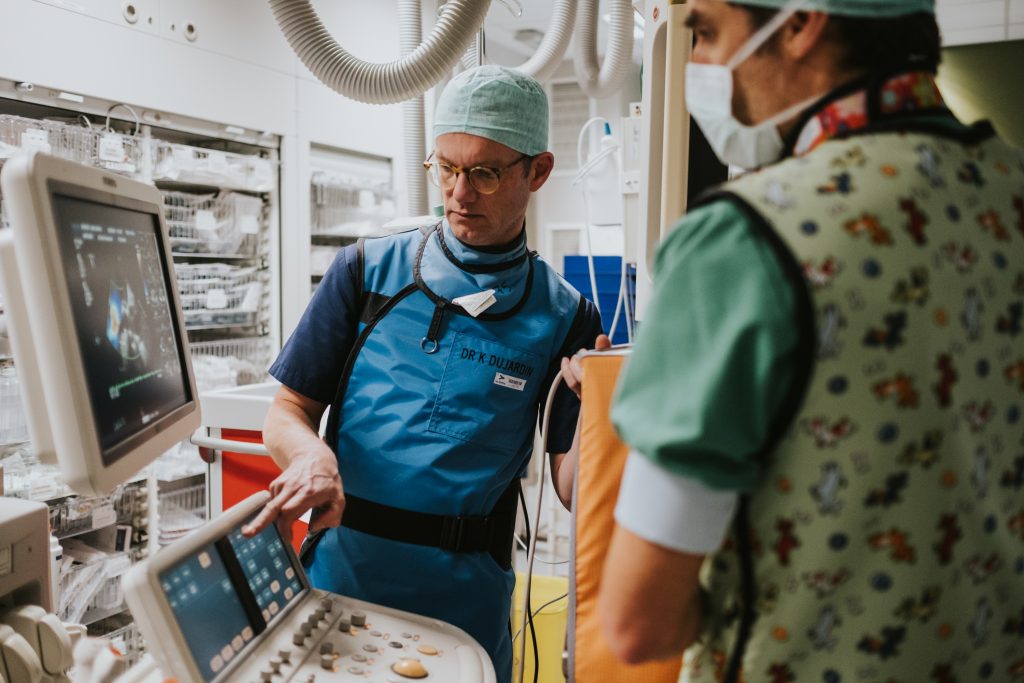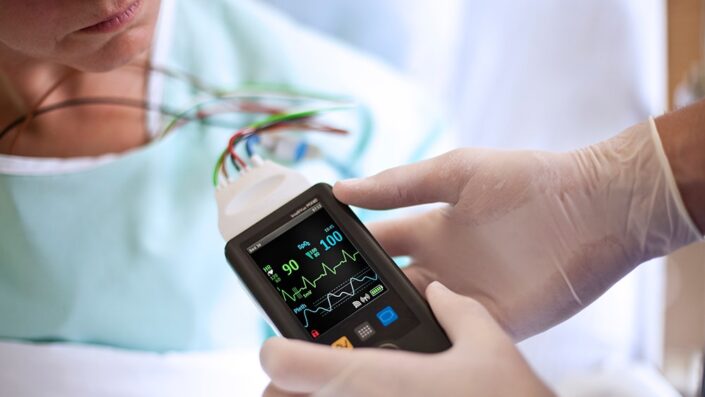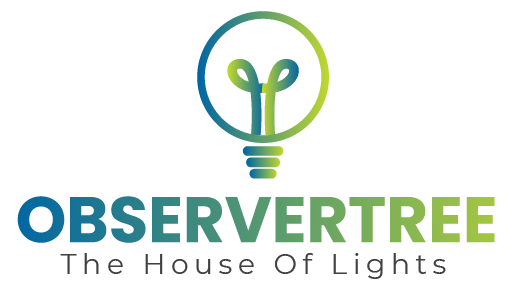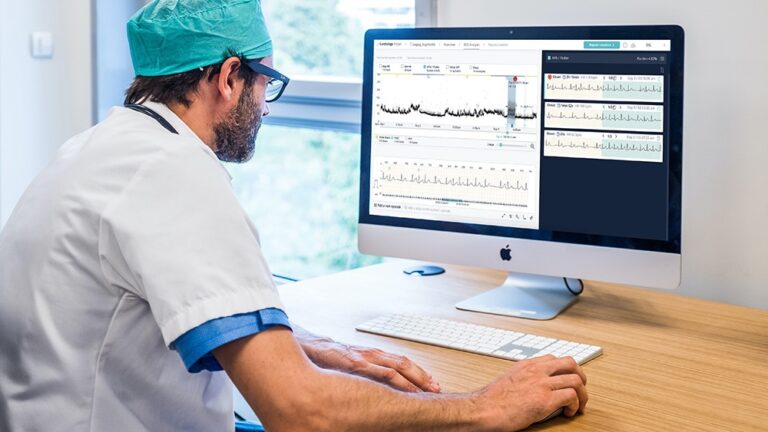As we explore the world of modern medicine, one field that is rapidly being shaped by advances in technology is cardiology. In this article, we will look at how Artificial Intelligence (AI) is influencing heart care and transforming the way we diagnose and treat cardiovascular diseases.
Well also examine some groundbreaking research focused on harnessing AI to improve patient outcomes while reducing the cost of healthcare. By leveraging machine learning algorithms and big data analytics, AI-powered technologies have already revolutionized several aspects of cardiology from early diagnosis to personalized treatment plans.
Finally, will discuss how these cutting-edge developments are paving the way for a new era of precision health care.
Overview of AI in Cardiology
The use of artificial intelligence (AI) in cardiology is rapidly increasing, with AI-driven solutions now being used to diagnose and treat heart diseases. By leveraging advanced algorithms like machine learning and deep learning, AI systems can analyze medical data quickly and accurately.
This enables doctors to make more informed decisions about the best treatment for their patients. In addition, AI-based tools can be used to detect early signs of cardiovascular disease or predict potential complications from existing conditions.
The application of AI in cardiology has also opened new possibilities for personalized medicine; by analyzing individual patient data, an AI system can suggest the most effective course of action tailored specifically to each person’s unique needs. There is no doubt that this intersection between technology and cardiology will continue to shape heart care far into the future as advances in both areas become increasingly intertwined.
Benefits of Using AI in Cardiac Care

AI is revolutionizing the way cardiac care is delivered. By leveraging AI-based technologies, doctors can diagnose and treat heart conditions more accurately and efficiently than ever before.
Here are some of the major benefits that AI brings to cardiac care: 1. Improved accuracy in diagnosing heart conditions – AI algorithms can identify patterns in medical data much faster than humans can, allowing for a higher level of accuracy when it comes to diagnostic decisions. This could reduce misdiagnoses for patients or lead to earlier intervention for those with serious health problems.
2. Reduced costs – As AI systems become more widely deployed in healthcare settings, they may help lower costs through automated processes such as processing insurance claims, managing patient records, and providing virtual consultations with specialists around the world.
3. Faster treatments – With its ability to analyze large amounts of data quickly, AI can provide doctors with insights on how best to treat a given condition or disease based on other similar cases from around the globe – resulting in faster turnaround times and improved outcomes for patients who need urgent treatment.
4. Greater access to specialized care – Through telemedicine technology powered by artificial intelligence, people living in remote areas could gain access to specialized medical advice from highly trained professionals located anywhere else in the world without having to travel long distances at great expense.
Overall, incorporating intelligent automation into cardiac care has many potential advantages that will undoubtedly improve patient outcomes while creating cost savings opportunities within healthcare facilities worldwide.
Challenges and Limitations to Adopting AI in Heart Care
Despite the potential benefits of AI in heart care, there are still challenges and limitations that must be addressed before its widespread adoption. One key challenge is patient privacy and data security.
The volume of sensitive medical information collected by AI systems requires robust measures to protect it from cyberattacks or misuse. Additionally, there are concerns around bias in the datasets used to train AI models which could lead to inaccurate results or misdiagnoses if not properly managed.
Another limitation is the cost associated with acquiring, training, and maintaining an AI system for healthcare applications. Finally, healthcare providers will need supportive education on how best to use this technology while making sure they maintain their high standards of clinical expertise.
Future Outlook for Artificial Intelligence in Cardiology

As the world of technology continues to advance, so too does its application in cardiology. Artificial Intelligence (AI) is quickly becoming an integral part of heart care, with countless applications ranging from risk stratification and disease diagnosis to drug development and personalized treatments. These advancements have opened up a range of possibilities for the future outlook of AI in cardiology.
The ability of AI systems to quickly analyze large amounts of data has enabled them to produce real-time insights into patient health status that are both accurate and reliable. This means physicians can now provide more precise diagnoses and make informed decisions about treatment much quicker than ever before.
Furthermore, the use of machine learning algorithms has allowed medical professionals to develop predictive models that help better predict cardiac events such as stroke or heart attack, allowing for more proactive measures when it comes to patient care. One particular area where AI holds great potential is personalized medicine – using artificial intelligence systems will enable doctors to create unique treatments tailored specifically for each patient based on their genetics or biomarkers present in their blood tests.
Such precision medicine may even be used one day soon by cardiologists for early detection and prevention purposes which would potentially save lives around the world! Finally, advances in natural language processing have also made it possible for AI systems to interact with patients directly through virtual assistants such as chatbots or voice recognition software which could be used not only as educational tools but also during consultations between patients and providers alike – leading ultimately lead towards better outcomes down the line thanks automation capabilities afforded by this type of technology. As we continue along our path towards technological progress in healthcare services, there is no doubt that Artificial Intelligence will remain at center stage playing a key role when it comes to shaping heart care across various disciplines going forward!
Conclusion
The intersection of technology and cardiology is an exciting area that is revolutionizing heart care. AI-driven tools are enabling clinicians to make faster, more precise diagnoses and provide better treatment options for cardiac patients.
Kardiologie advancements in artificial intelligence and machine learning have made it easier for doctors to identify patterns, detect anomalies, and diagnose complex diseases such as heart failure with greater accuracy than ever before. As the use of AI in healthcare continues to grow, so will its impact on cardiology; allowing us to improve patient outcomes while also reducing costs associated with providing quality cardiovascular care.


